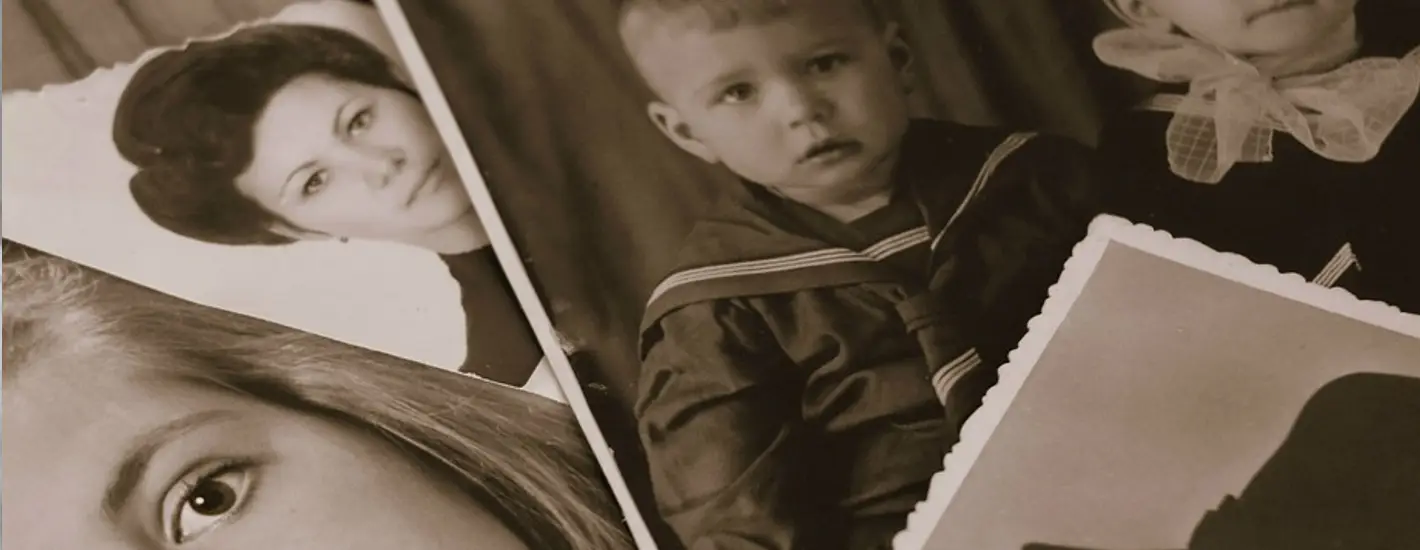This Thanksgiving, and through the end of the year, (and from now on) give yourself and your family a gift that is far beyond the material items that can be purchased and wrapped.
Give a gift that will forever change the course of your family’s interactions and dynamics.
Most communication and relationship dramas are due to misunderstandings and miscommunication. The problem results from individuals who have already made up their mind about a matter and refuse to be persuaded to see another view. This may be others … or this may be you!
As you gather with your family this year, approach it with curiosity and love, rather than dread and resentment. Your mindset as you enter the room will make your time together enjoyable, or at least revealing … or it will just repeat a pattern of false relationships and just ‘going through the motions” of being a family, without anyone addressing the elephant in the room.
LOOK & LISTEN
 Observe with an open mind. Watch from a ‘distance’ by taking in all the family dynamics and energy in the room. Love it or hate it, don’t own it. Just observe it and be thankful for a different viewpoint that is not ‘underwater’ but from a different perspective which offers the opportunity to be thankful, or to take action toward healing.
Observe with an open mind. Watch from a ‘distance’ by taking in all the family dynamics and energy in the room. Love it or hate it, don’t own it. Just observe it and be thankful for a different viewpoint that is not ‘underwater’ but from a different perspective which offers the opportunity to be thankful, or to take action toward healing.
Be willing to have your perceptions changed regarding a matter by REALLY listening to what is being said. Listen to the words that people use. Are they talking from a relationship or task viewpoint? Are they people who relate with affection and touch? Or do they protect their personal space and DO things to communicate? Make it a game to watch each individual and to truly SEE and HEAR who they are and how they perceive their world – and one another!
Make it a game to watch each individual and to truly SEE and HEAR who they are and how they perceive their world – and one another!
ASK BETTER QUESTIONS
 What is a better question? It’s the thoughtful one… the curious one … and most often is not the first question that popped into your mind. We’ve been programmed through a variety of experiences to be ‘politically correct’ and often to be confrontational, expecting arguments and ‘right or wrong’ conclusions.
What is a better question? It’s the thoughtful one… the curious one … and most often is not the first question that popped into your mind. We’ve been programmed through a variety of experiences to be ‘politically correct’ and often to be confrontational, expecting arguments and ‘right or wrong’ conclusions.
When you intentionally lay down your defenses in exchange for curiosity, you are now in a listening and communication frame of mind, not one of confrontation and judgment.
WATCH FOR CLUES!
 We all tend to pass judgments way too easily. We like to think we are right about things – even if we were to receive a better answer that will heal, or bless us, we are terrified of thinking that we might be ‘wrong’ about something. Our perceptions are that if we are wrong, then we are worthless. This type of fear is at the core of every human being. Our definition of being ‘right’ however, is merely one of perception. What is right for one person, may not be right for another. For instance, in some cultures, eye contact is mandatory, in order to establish whether a person can be trusted or not. In other cultures, eye contact is considered extremely rude, invasive, arrogant, and disrespectful!
We all tend to pass judgments way too easily. We like to think we are right about things – even if we were to receive a better answer that will heal, or bless us, we are terrified of thinking that we might be ‘wrong’ about something. Our perceptions are that if we are wrong, then we are worthless. This type of fear is at the core of every human being. Our definition of being ‘right’ however, is merely one of perception. What is right for one person, may not be right for another. For instance, in some cultures, eye contact is mandatory, in order to establish whether a person can be trusted or not. In other cultures, eye contact is considered extremely rude, invasive, arrogant, and disrespectful!
Passing judgment on a person is drawing a final conclusion about who they are, and what they are worth. Judgement works two ways, too! You can judge someone to be worthless, or you can judge someone to be a saint and worth all of your trust. To judge a person in either manner sets up that person and yourself for trouble. Instead of judging them … judge their fruits. What are they producing in their lives? Is it out of pain? Ignorance? Or malice? You can discover motives and intentions by doing this. Many addictions, affairs, lies, narcissistic behaviors, abuse, and deception will be revealed by what they say and do – NOT by who you think they are!
Many well meaning, good people are misjudged as “losers” and unworthy of respect when judged at face value. These judgments, especially within family units may have evolved from something a person did as a child to gain attention or to be heard. Once that judgment was passed, that person was filed away into a category with no chance of ever being heard or seen again as the individual they were born to be.
NOTICE!
 Notice your own thoughts and emotions. Especially notice through your young eyes! Holiday family gatherings are ripe with immature notions and emotions as family members interact with one another from past experiences and programmed behaviors. What belief systems are most noticeable? What opinions are most often voiced? Noticing with your young eyes helps you to see what was and how it affects you today.
Notice your own thoughts and emotions. Especially notice through your young eyes! Holiday family gatherings are ripe with immature notions and emotions as family members interact with one another from past experiences and programmed behaviors. What belief systems are most noticeable? What opinions are most often voiced? Noticing with your young eyes helps you to see what was and how it affects you today.
Noticing with your young eyes helps you to see what was and how it affects you today.
Notice the ‘story’ that is in your head and ask yourself, “is this the truth? How can I know this is true? Is this about me? Many angry outbursts happen because people do not feel heard or understood. If you notice someone is frustrated, or clamming up, notice that there’s been a disconnect and ask the person what they need. Notice the emotional energy in the room. No one will tell you what they truly need until they feel safe. Timing is important here. If the timing is bad, then make a mental note and approach the person later. Let them know that you saw them disconnect and that you really do want to hear what they had to say.
 Some people take longer to process their thoughts than others, and they need more time. For those of you who ARE those people, understand that people who process their thoughts quickly, expect an answer quickly. Give them an answer! Thankfully, your answer can be simply, “You know, that’s a good question … I need some time to think on that, and then I’ll get back to you.” You have given them an answer and you have also set a boundary for more time to process.
Some people take longer to process their thoughts than others, and they need more time. For those of you who ARE those people, understand that people who process their thoughts quickly, expect an answer quickly. Give them an answer! Thankfully, your answer can be simply, “You know, that’s a good question … I need some time to think on that, and then I’ll get back to you.” You have given them an answer and you have also set a boundary for more time to process.
If you get a blank stare when you ask “What were you THINKING?” Then you may be talking to a person who FEELS before they can think. When confronted with a situation, people who are Feelers will be flooded with emotion and not be able to communicate effectively until they have sorted through their emotions. If a person who is a Thinker first is asked, “Why are you so cold?” It may be that they need to be truly heard in order to communicate their many thoughts. They think before they feel. Just as a Feeling person cannot communicate their thoughts until they have sorted through their emotions, so a thinking person cannot get in touch with their emotions until they have communicated their thoughts.
FORGIVE
 Forgiveness is not about saying, “what you did to me is okay, it didn’t really matter” … it is about releasing them to their own path while you embrace yours. Not forgiving is like dragging them into your world to pollute every moment and every thought. Release it. Know where their issues belong – in their world, not in yours!
Forgiveness is not about saying, “what you did to me is okay, it didn’t really matter” … it is about releasing them to their own path while you embrace yours. Not forgiving is like dragging them into your world to pollute every moment and every thought. Release it. Know where their issues belong – in their world, not in yours!
Forgiveness may not be a one time event! Depending on the depth of the offense, you may need to release someone over and over – as if you were pealing layers off an onion. Notice the pain, notice the message that came with the pain (was it that you were worthless? Unloveable?) Do NOT embrace toxic messages as truth -they are to be released through forgiveness as well, because it was the perpetrators perception – not the truth.
Do NOT embrace toxic messages as truth -they are to be released through forgiveness as well, because it was the perpetrators perception – not the truth.
If, by your efforts, you change the course of the day by making it more interesting and loving, celebrate and give thanks!
If, by your efforts and observations, you realize that your situation will not change because others CHOOSE their perceptions and will stick with them, no matter what the cost … then consider if this is what you want more of in your life. Many will not set boundaries with family members – especially during the holiday season, because of fear of retribution and fallout criticisms. However, if your holiday gathering is only confirming those things anyway, then why go back for more? Be loving … be forgiving … and choose life.
Life doesn’t have to be so hard – we make it that way!
Be the change you want to see!


